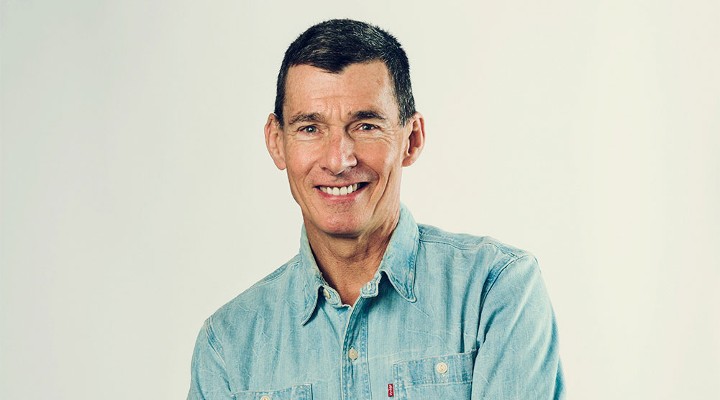The death of globalisation, the power of the human touch and the search for sustainable solutions are all key focuses on Levi’s future agenda, revealed Levi’s CEO Chip Bergh at the World Retail Congress. Levi Strauss &Co has been around since 1853 and now sells product in more than 110 countries. Bergh joined Levi’s in 2011, after a 28-year stint at Procter & Gamble. During his time at the company, he was named as one of the world’s greatest leaders by Fortune magazine and
nd has been widely acknowledged for his position on values-driven leadership.
According to the brand, Levi’s is aiming for a 2027 net revenue of $9 billion to $10 billion reflecting 6-8 per cent organic annual growth. The business also plans to expand direct-to-consumer sales to 55 per cent of total revenue and triple e-commerce sales by 2027.
In the future, Bergh believes that four major trends are driving changes within his organisation and the global Covid-19 pandemic has certainly accelerated these headwinds: sustainability, digitisation and e-commerce, supply chain resilience and cost pressures. Here are some of the key insights from his presentation during the Congress.
The search for sustainable solutions
Currently, Levi’s is investing in alternative fibre technologies, alternative hemp and drastically reducing their usage of water in the manufacturing process. Waterless programs used to be an EU centric initiative, but it’s now becoming a global priority.
“Our imperative is therefore clear, we must continue to find ways to use less water, to reduce emissions, to better support workers, to drive safer chemistry, to further reduce waste and become more circular,” Bergh said.
“Young consumers are focused on climate change, and we are aware of this and as a company we are doing everything in our power to be the change we want to see,” he elaborated.
Retail companies are tech companies
“In ten years, every company that does not become a tech company will fade away, and we are rapidly becoming one to stay ahead,” Bergh declared.
After all, since the pandemic, when stores closed, it’s clear that e-commerce is here to stay and Levi’s is now focusing on simplifying its business processes, making the whole company more dynamic, nimble and agile.
The death of globalisation
Perhaps the most controversial statement made was: “Globalisation is dead.”
“When you’ve got container ships stuck in the port at Long Beach, and consumers can’t get your product, you’re leaving money on the table, and that’s not a good thing,” Bergh said, adding “the name of the game is now supply chain resilience and agility”.
A shift towards manufacturing hubs that are closer to major markets will be preferred, as opposed to conventional low cost manufacturing hubs that require global shipping and logistics, Bergh explained. The centuries-old practice of manufacturing your product at the lowest common denominator and then putting it on ships that may not reach your target market on time is coming to an end.
“We’re going to see more manufacturing shifting closer to market because of the importance of that agility and responsiveness and having confidence that the product is going to be on the shelf in store when you need it to be.”
The human touch is key
Interestingly, the classic tagline “Live in Levi’s” originally came from a consumer research study, when a respondent from Bangalore, stated: “You wear jeans, but you live in Levis.”
It demonstrates the power of listening to focus groups and how golden nuggets of brand insights could come from ordinary folk, not just from advertising agencies.
“We cut across generations, from the young to the old, but we do target the 18-30 demographic, which is our halo sector, and we do a lot of consumer research, both qualitative and quantitative,” Bergh explained.
“We are investing in data science, we are mining a lot of data, but of course the human touch is important. Research is an aid to judgement, and mining data across a lot of touchpoints enables management to look over the data and make better decisions.”
This is a people business
Like many savvy retailers right now, diversity, equity and inclusion are key focuses at Levi’s right now. In Bergh’s mind, the company will only be at its best if everyone brings their true, authentic self to work everyday and be at their best. There is enough proof that a diverse workforce can make a difference to a company’s bottom line.
Last month, the retail giant signed a charter to end racial bias in store environments, along with major US brands such as Gap, Ben and Jerry’s, Crocs, Sephora and more.
Finally, Bergh believes that at the end of the day, Levi’s is a people business.
“People would not remember me for the profits that the company made, they will only remember me if I made them feel better about themselves,” he explained. “What makes a great leader is the ability to get the best and the most out of people, that’s the ability to lead,” he noted.

